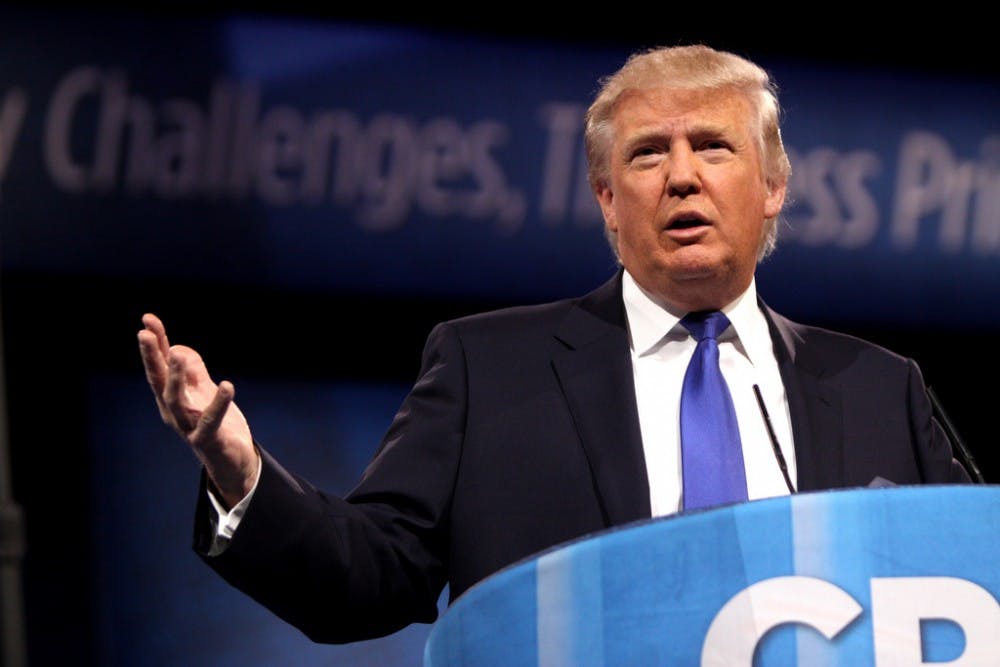Leaders in business, politics and religion gathered at Penn on Wednesday to compare strategies for resisting President Donald Trump.
“Institutions are required to stand up and recognize this is not business as usual,” professor Eric Orts said. “It’s a non-normal situation.”
The Political Science Department and Pi Sigma Alpha Political Science Honors Society hosted a panel titled “Joining the Resistance: Perspectives from Business, Politics, and Religion” featuring a range of panelists including Steering Committee Member of Democratic Socialists of America Dustin Guastella, legal studies and business ethics professor Eric Orts and Minister of the First Unitarian Church of Philadelphia Abbey Tennis.
All the panelists said they oppose Trump, citing his history of racial discrimination and threats to curtail press freedom. Panelists also offered advice for how to resist the Trump administration based on experience from their respective fields.
Guastella said there is a need for mass protests and organization, but warned against abstract statements like “Love Trumps Hate,” which are “fundamentally non-political.” He emphasized that resistance against Trump needs concrete statements that reflect concrete demands.
Guastella added that “targeted economic disruptions are most effective,” which Orts agreed with. Orts said business leaders have a responsibility to be involved in politics, whether this means giving their workers days off to protest or protesting themselves.
Orts also discussed the influence of consumers, citing the example of the #DeleteUber movement following accusations that the ride-sharing company had tried to profit from Trump’s immigration ban by offering rides during a Taxi strike at John F. Kennedy International Airport in New York City.
“There’s a lot more power in the areas of consumers and employees … to get these issues on the agenda,” he said.
Tennis added that it is also important to note the long-lasting relationship between religion and political opposition.
“The civil rights movement was built largely in churches, by ministers,” she said.
In recent years, religion has been associated with conservatism, but progressive churches — like her own — also exist, she said. She added that she would be surprised to find a single Trump supporter in her congregation.
Tennis said she hopes her church can serve as a place for activists to re-energize themselves from the often challenging and draining fight for justice, noting that there was a significant increase in congregants attending services after Trump’s election.
All panelists stressed the importance of dedication to political involvement.
“Most of Americans aren’t involved in political struggles in a day-to-day basis,” Guastella said.









